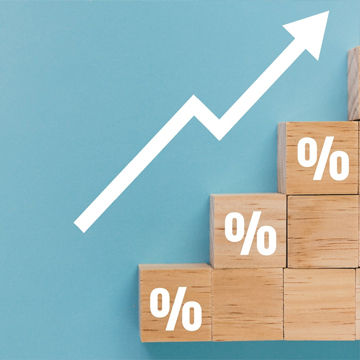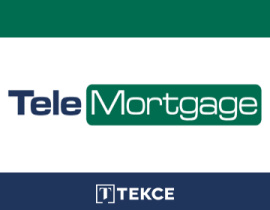- Home
- Blog
- Tips & Advice
- Is It Better to Buy a Property with Cash or Get a Mortgage?
Is It Better to Buy a Property with Cash or Get a Mortgage?
The decision to buy a home is often one of the most significant financial choices individuals make. When deliberating over purchasing a house, two primary methods emerge: buying with cash or securing a mortgage. Each option carries its own set of advantages and disadvantages that can impact one’s financial future, lifestyle choices, and overall peace of mind. Learn all the aspects of buying real estate with cash vs mortgage.
What Are Cash Purchases in Real Estate?
Buying real estate with cash means paying for the property in full without needing a mortgage or any other financing. The buyer usually pays the entire amount upfront, often through a bank transfer or cashier's check. Paying cash for real estate removes the need for lenders and avoids the difficulties that come with getting a loan.
Here are the advantages of cash-buying property
 1. No Monthly Payments: Purchasing a home outright eliminates the burden of monthly mortgage payments. This provides a sense of financial freedom and the ability to allocate funds toward other investments or savings.
1. No Monthly Payments: Purchasing a home outright eliminates the burden of monthly mortgage payments. This provides a sense of financial freedom and the ability to allocate funds toward other investments or savings.
2. Interest Savings: By avoiding a mortgage, buyers save a substantial amount on interest payments over the life of a loan. This can translate into tens of thousands of dollars, depending on the home's price and the mortgage interest rate.
3. Stronger Negotiating Position: Cash buyers often hold an advantage in negotiations. Sellers may prefer cash offers, as they eliminate the risk of financing falling through, which can result in quicker transactions and potentially lower sale prices.
4. Immediate Ownership: Buying in cash means you own your home outright from day one. This immediate ownership can increase one’s feeling of stability and security.
Disadvantages
1. Liquidity Constraints: While spending cash to purchase a home can be advantageous, it may lead to reduced liquidity. Homeowners might find themselves cash-strapped and unable to fund emergencies or additional investment opportunities.
2. Opportunity Cost: The capital used to purchase the home could have been invested elsewhere, potentially yielding better returns. Real estate tends to appreciate, but other investment avenues may offer higher rates of return depending on market conditions.
3. No Tax Benefits: Unlike mortgage holders, cash buyers miss out on mortgage interest tax deductions, which can be significant savings concerning taxable income.
Understanding Mortgages
A mortgage is a loan from a bank or lender that helps you buy a home. You agree to pay back the loan, plus interest, over a set period of time, usually 15 to 30 years. If you can't make the payments, the lender can take your home as collateral.
Here are the steps of how to buy a house with a mortgage;
 Get Pre-Approved: Before you start looking for a house, get pre-approved by a lender to know how much you can borrow.
Get Pre-Approved: Before you start looking for a house, get pre-approved by a lender to know how much you can borrow.
Search for Homes: With your pre-approval, look for homes that fit your budget. You can visit real estate websites to find your dream home.
Make an Offer: When you find the right home, submit an offer that depends on getting financing.
Apply for the Loan: Officially apply for the mortgage by providing documents like proof of income and credit information.
Appraisal and Inspection: The lender will check the property's value and may also require an inspection.
Close the Deal: Sign all necessary papers and pay closing costs to finalize the mortgage.
Advantages of Buying with Mortgage
Retaining Cash for Other Uses: One significant advantage of using a mortgage to buy a house is the ability to retain cash for other uses. By not tying up a large sum of money in purchasing the property outright, homeowners can maintain liquidity. This retained cash can be used for emergencies, investments, or other financial opportunities that may arise.
Potential Tax Benefits: Mortgages also come with potential tax benefits. The interest paid on a mortgage is often tax-deductible, which can reduce the overall tax burden. This deduction can be particularly advantageous in the early years of the mortgage when interest payments are higher.
Disadvantages
Long-term Financial Commitment: A mortgage represents a long-term financial commitment. Homeowners are obligated to make monthly payments over an extended period, often 15 to 30 years. This commitment can limit financial flexibility and increase stress if income stability changes.
Interest Payments: While there are tax advantages, mortgages also come with interest payments. Over the life of the loan, these payments can amount to a significant sum, potentially costing more than buying the house outright in cash.
Qualification Requirements: Securing a mortgage requires meeting specific qualification requirements such as credit score, income level, and debt-to-income ratio. These criteria can be stringent and may exclude some potential buyers from qualifying for financing.
Staying in Rent or Buying a Home with a Mortgage?
When comparing buying a house in cash vs a mortgage, many people also consider whether staying in rent is a better option. The decision to rent or buy with a mortgage depends on individual circumstances, preferences, and financial situations. For those planning to settle down long-term, purchasing a home with a mortgage can help build equity and provide stability within a community. While rent tends to increase annually, making buying a home with a mortgage more advantageous over time, paying your mortgage is similar to paying rent, but with the benefit that, once the mortgage is fully paid off, you’ll no longer have any payments, offering a sense of financial relief.
Home Mortgages: Balancing Risk and Opportunity
 Utilizing a home mortgage can come with certain risks, but it’s not inherently harmful when managed responsibly.
Utilizing a home mortgage can come with certain risks, but it’s not inherently harmful when managed responsibly.
Long-term Debt Commitment: Mortgages typically span 15 to 30 years, requiring consistent financial discipline. While this creates a lasting financial obligation, it can be manageable with proper planning.
Interest Rate Changes: Adjustable-rate mortgages may see rising rates, but fixed-rate options provide stability. Even in fluctuating markets, fixed-rate mortgages offer predictability in payments.
Property Value Changes: While property values can fluctuate, real estate generally appreciates over time. Careful investment decisions can help mitigate the risk of short-term market downturns.
Associated Fees: While there are upfront costs such as closing fees and private mortgage insurance (PMI), these are standard and can be accounted for in your financial planning.
Overall, the risks associated with a mortgage can be managed, and it remains a useful tool for homeownership when approached with care.
TeleMortgage: Game-Changer Opportunity in Real Estate
TEKCE’s TeleMortgage service is designed to simplify overseas property financing, making it easier than ever to secure a mortgage from abroad. This revolutionary solution eliminates language barriers and handles all the complex steps on your behalf—from managing essential documents between banks and government offices to ensuring quick, professional results.
With TeleMortgage, securing financing for your dream home is easy, whether you're purchasing property in Spain, Turkey, Dubai, or North Cyprus. For more detailed information and a step-by-step guide to obtaining a home loan through TeleMortgage, visit our dedicated TeleMortgage page.







